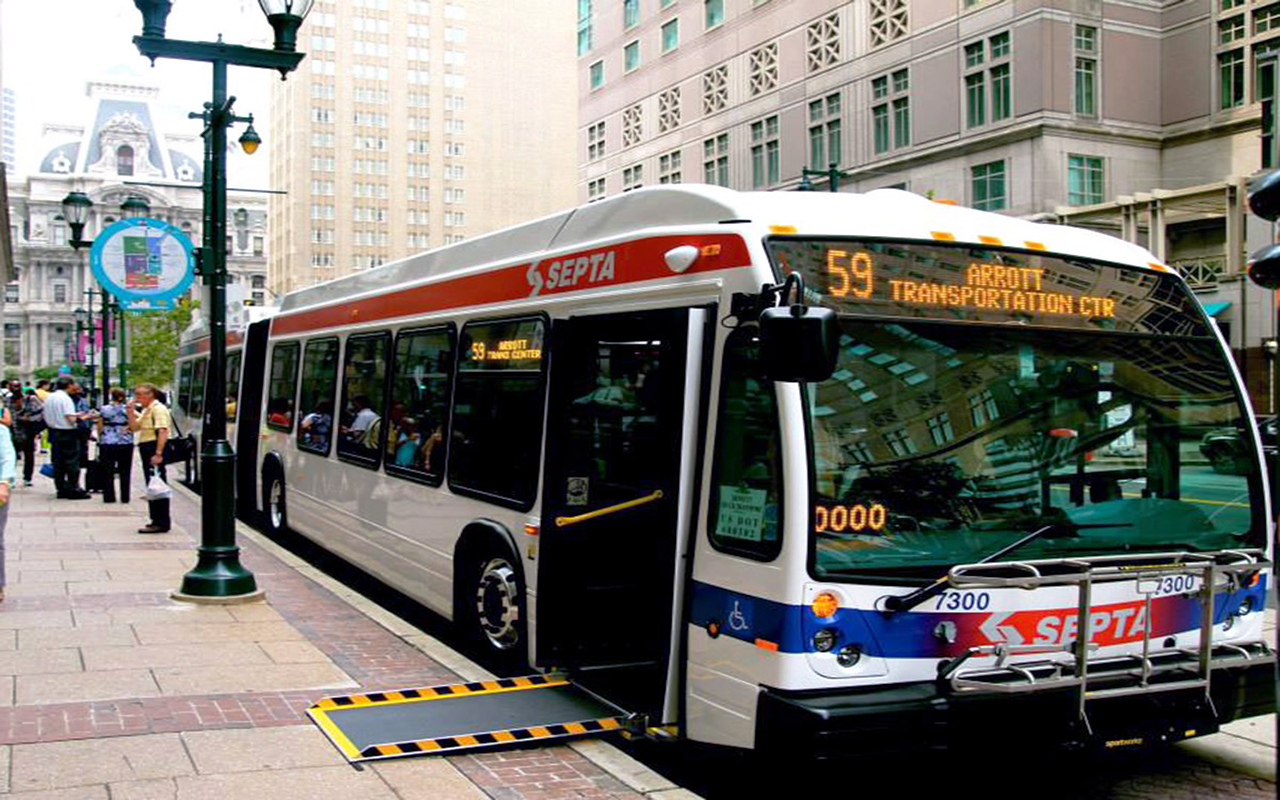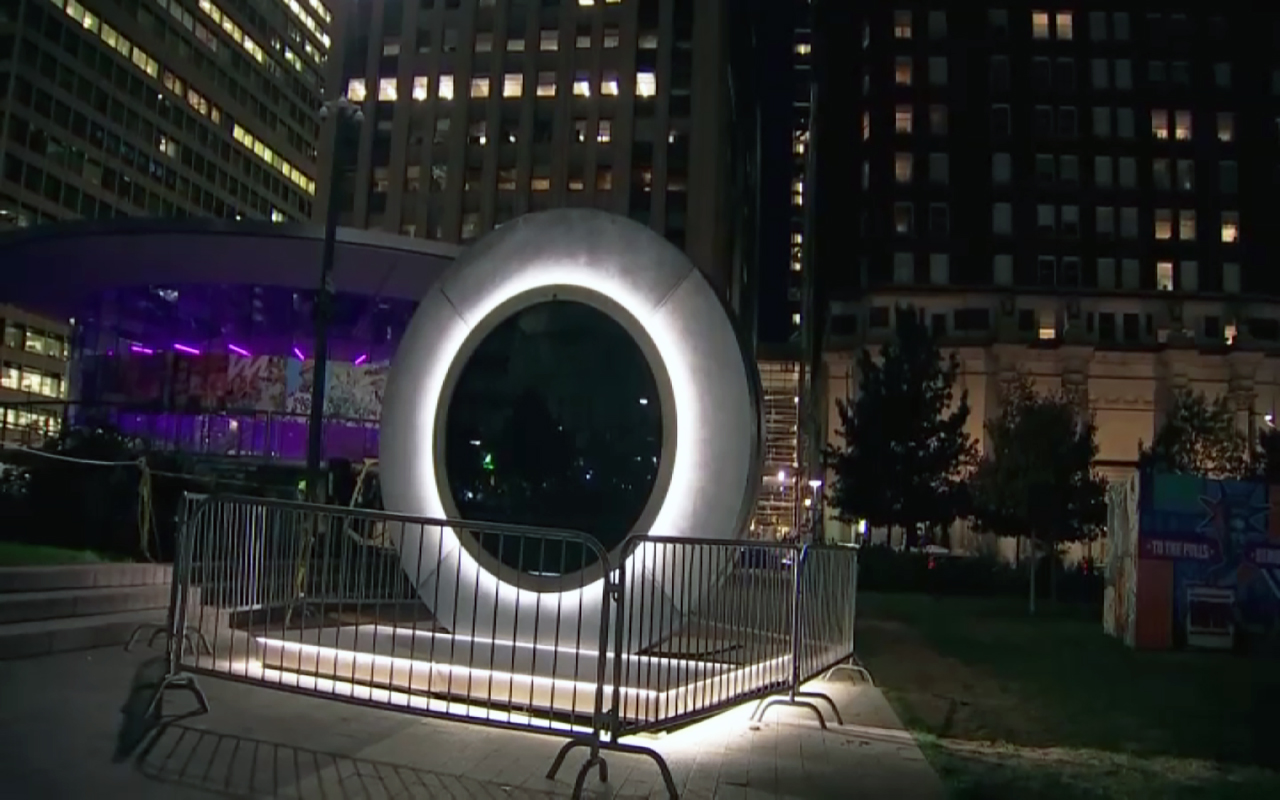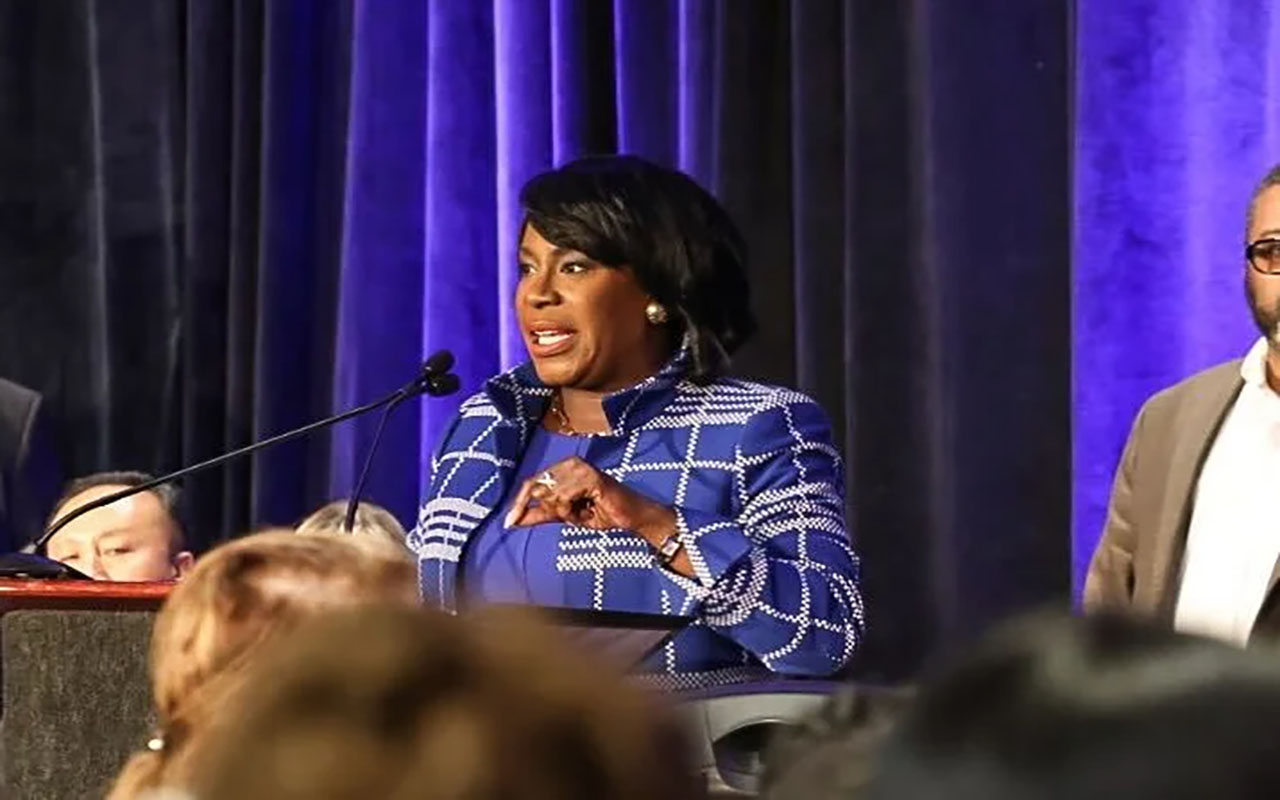
'Justice for Janitors' rally sends message to local employers
Over 150 workers took part in a "Justice for Janitors" marched Wednesday in what was intended to be both a commemoration and a call-out.
Over 150 workers took part in a "Justice for Janitors" march through Center City on Wednesday. Organized by the SEIU 32BJ service workers union, the rally was intended to be both a commemoration and a call-out.
The original "Justice for Janitors" dates back to June 15, 1990, in Los Angeles. At the time, the local chapter of SEIU was working towards a union contract for low-wage workers employed by the contractor responsible for cleaning municipal office buildings. The janitors, many of whom were immigrants, staged a peaceful demonstration in LA's Center City district.
Some 50 baton-weiding police officers intervened and the demonstration turned violent. Dozens of workers were wounded in the conflict. But in the end, the police clash only helped bring support to the cause. The workers eventually secured a $2 an hour wage increase city wide.
"Today is of course to commemorate Justice for Janitors," Daisy Cruz, area director for 32BJ's mid-Atlantic office, said as the union's rally chants and drum fills coursing through Market Street. "But the other reason why we're out here today is because 125,000 service workers are going to be negotiating their contracts over the next few years."
The rally targeted two local employers in particular: Teva Pharmaceutical Industries and CleanTeach, a contracted cleaning service company.
According to Carolina Gonzales, a 32BJ spokesperson based in New York City, CleanTeach is a longtime non-union contractor, while Teva has recently been firing unionized workers and replacing them with non-union workers.
Why these impromptu marches? The deadline for contract negations with the city is October 15, 2015, leaving just months to come to an agreement.
One demonstrator at the rally said that maintaining a vocal public presence is key to the negotiations process. It lets employers know that poverty wages will not be tolerated by organized workers.
32BJ promises competitive pay to their workforce, which is comprised of almost two-thirds African American, almost one-third Latino, and a small percentage of European immigrants and white native-born citizens.
In addition to paid vacation time and sick leave, 32BJ also fights for paid training for growth positions.
“You can start out as a cleaning person and then learn management skills that can get you a promotion with a better pay grade,” Gonzales said.
32BJ boasts a successful contract negotiations rate in the Delaware Valley. Workers have not had to strike over a contested agreement in recent memory, Cruz and Gonzales said.










LEAVE A COMMENT:
Join the discussion! Leave a comment.